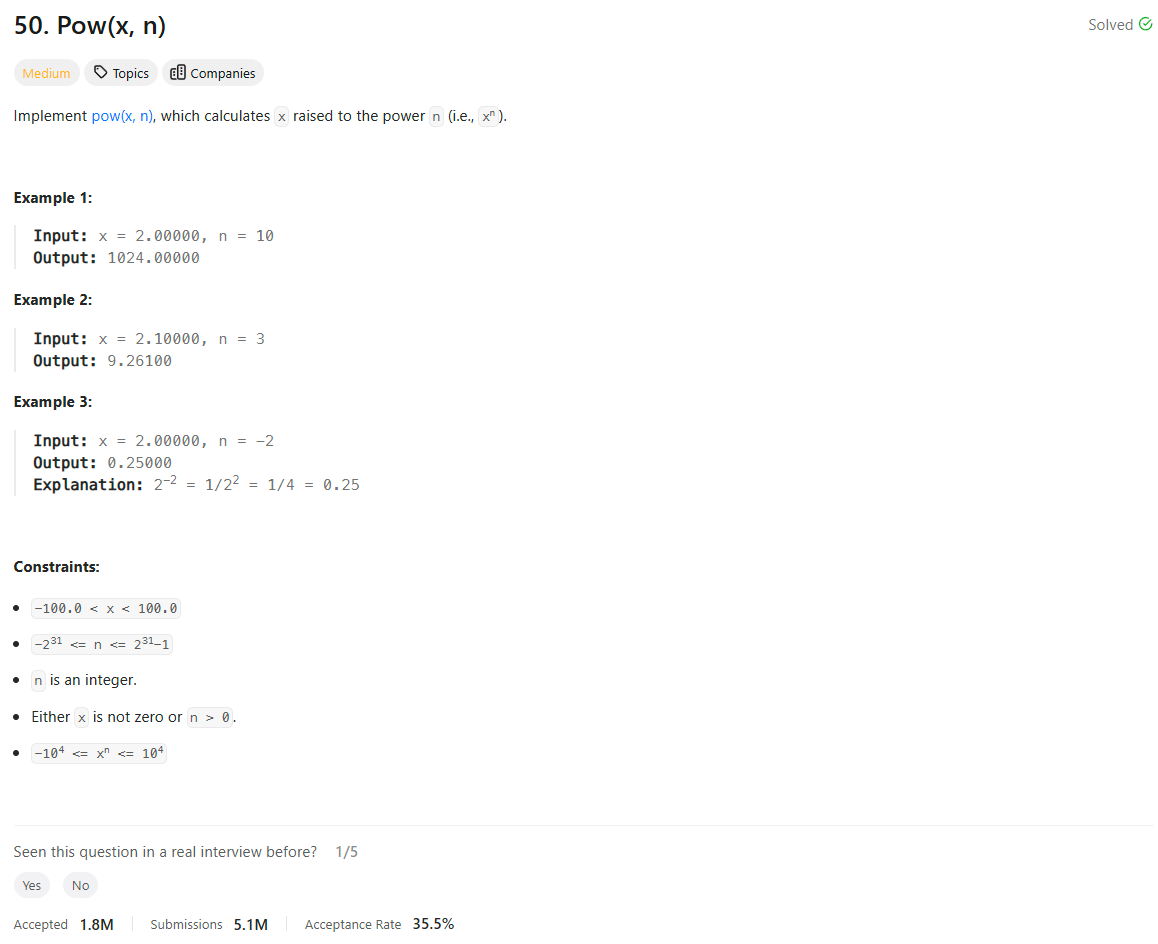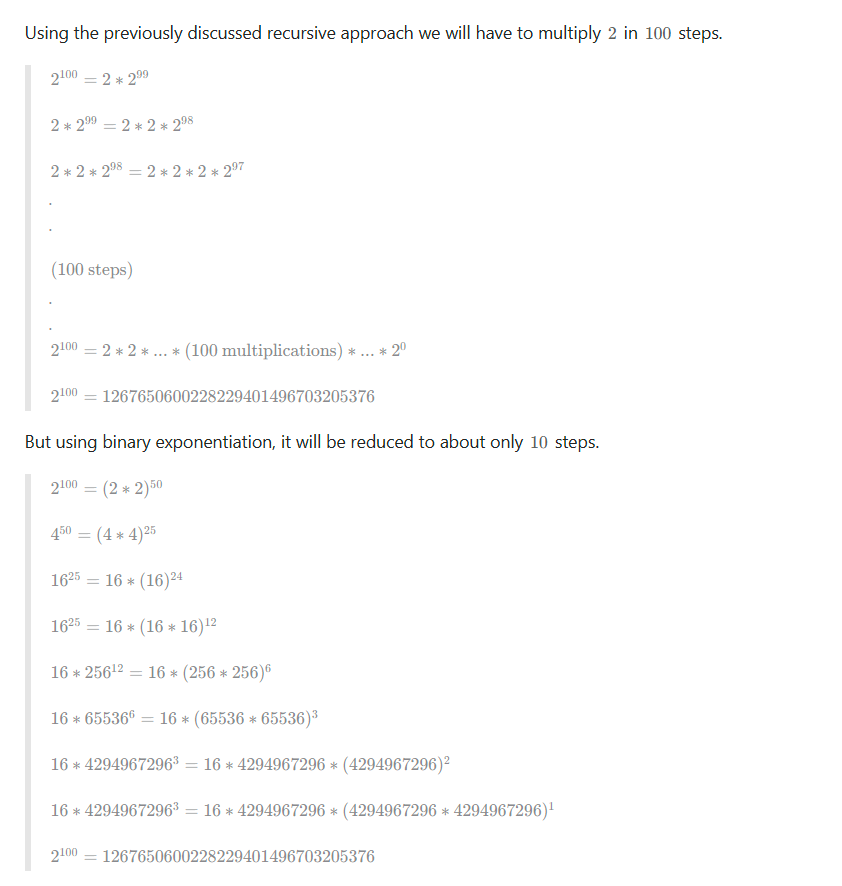Problem of The Day: Pow(x, n)
Problem Statement

Editorial
Optimized Recursion Approach
Notes from solution:

class Solution:
def binaryExp(self, x: float, n: int) -> float:
# Base case, to stop recursive calls.
if n == 0:
return 1
# Handle case where, n < 0.
if n < 0:
return 1.0 / self.binaryExp(x, -1 * n)
# Perform Binary Exponentiation.
# If 'n' is odd we perform Binary Exponentiation on 'n - 1' and multiply result with 'x'.
if n % 2 == 1:
return x * self.binaryExp(x * x, (n - 1) // 2)
# Otherwise we calculate result by performing Binary Exponentiation on 'n'.
else:
return self.binaryExp(x * x, n // 2)
def myPow(self, x: float, n: int) -> float:
return self.binaryExp(x, n)
- time: O(log n)
- space: O(log n)
Approach 2: Binary Exponentiation (Iterative)
class Solution:
def binaryExp(self, x: float, n: int) -> float:
if n == 0:
return 1
# Handle case where, n < 0.
if n < 0:
n = -1 * n
x = 1.0 / x
# Perform Binary Exponentiation.
result = 1
while n != 0:
# If 'n' is odd we multiply result with 'x' and reduce 'n' by '1'.
if n % 2 == 1:
result *= x
n -= 1
# We square 'x' and reduce 'n' by half, x^n => (x^2)^(n/2).
x *= x
n //= 2
return result
def myPow(self, x: float, n: int) -> float:
return self.binaryExp(x, n)
- time: O(log n)
- space: O(1)